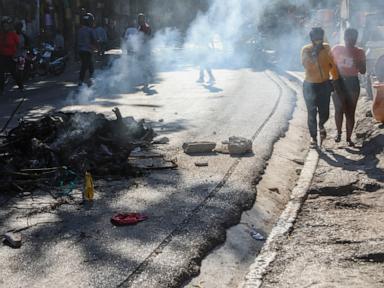ARTICLE AD BOX
The Irish Times claims Dublin is considering ending free-accommodation scheme for Ukrainian refugees starting from March 2025
The Irish government is considering ending its program of providing free housing to all new Ukrainian asylum seekers arriving in the country, the Irish Times has reported. The newspaper claimed that officials in Dublin are also mulling introducing a “maximum stay” rule to encourage refugees already residing in publicly funded accommodation to start fending for themselves.
In recent months, several EU member states have been gradually scaling back welfare programs for Ukrainian refugees, incentivizing them to seek employment or leave. Amid its ongoing mobilization and conscription push, Kiev has also called on European nations to reduce financial support to its citizens residing abroad, hoping to force draft-eligible men to return to their homeland.
In an article on Wednesday, the Irish Times said the reported discontinuation of provision of free accommodation could take effect from next March. It also said that among other “policy levers” under consideration by Irish government officials is one that automatically terminates free housing for Ukrainians once their earnings rise above a certain threshold.
While being discussed by “senior officials,” these measures “have not yet been widely circulated among Ministers” or members of the country’s Cabinet committee on Ukraine that oversees the accommodation of Ukrainian refugees, the newspaper noted.
Read more NATO country to limit migration from Ukraine
NATO country to limit migration from Ukraine
According to Department of Integration data cited by the Irish Times, the number of Ukrainian asylum seekers living in state-provided housing currently stands at 35,833.
In May, Irish authorities cut welfare handouts and limited state-funded accommodation for new arrivals to 90 days, as opposed to a residency of indefinite duration.
Explaining the need for the measures, Social Protection Minister Heather Humphreys said earlier this year that previous, generous welfare arrangements were “not sustainable in the long run.” She added that the Irish government did not “want this country to be more attractive than any of our other European countries.”
In August, another EU member state, Hungary, announced that refugees coming from areas of Ukraine deemed by Budapest to be unaffected by the conflict would no longer be entitled to free accommodation, with exceptions made for vulnerable individuals.
Meanwhile, last month, the EU’s statistics bureau Eurostat reported that in Germany in just one month some 236,925 Ukrainian refugees had lost their temporary protection status.
The status, introduced by the European Council, grants asylum seekers from Ukraine the right to an extended visa-free stay in the country, as well as free accommodation, medical care, and education.
.png)
 1 month ago
2
1 month ago
2








 English (US)
English (US)